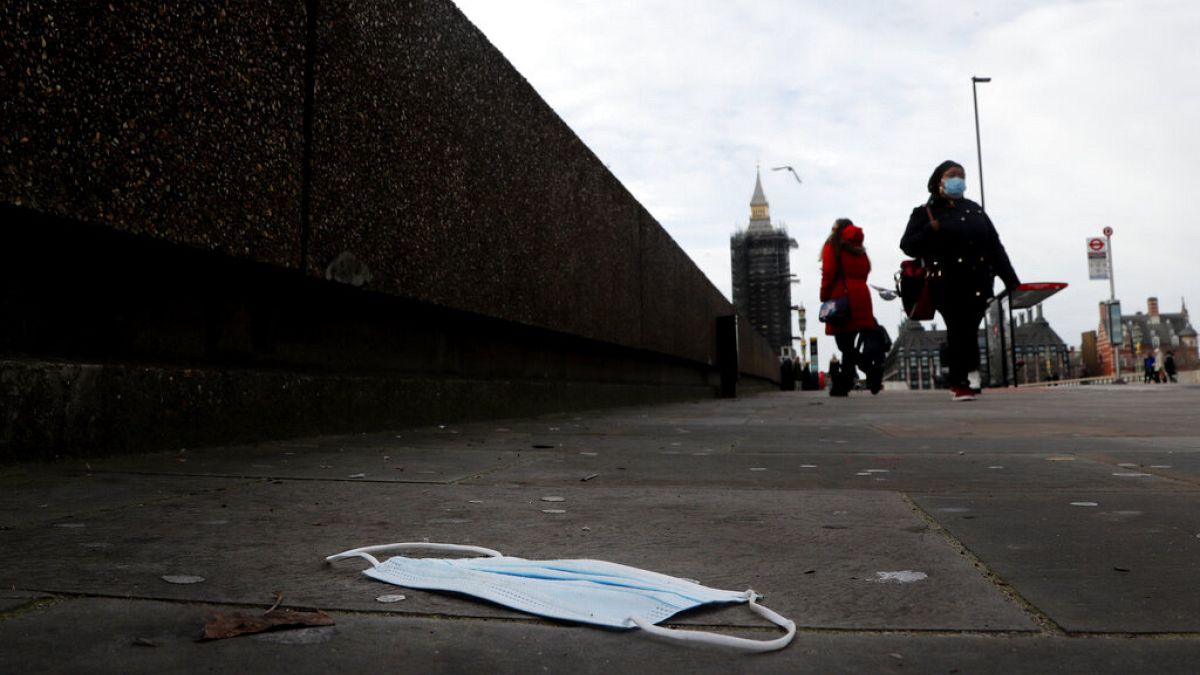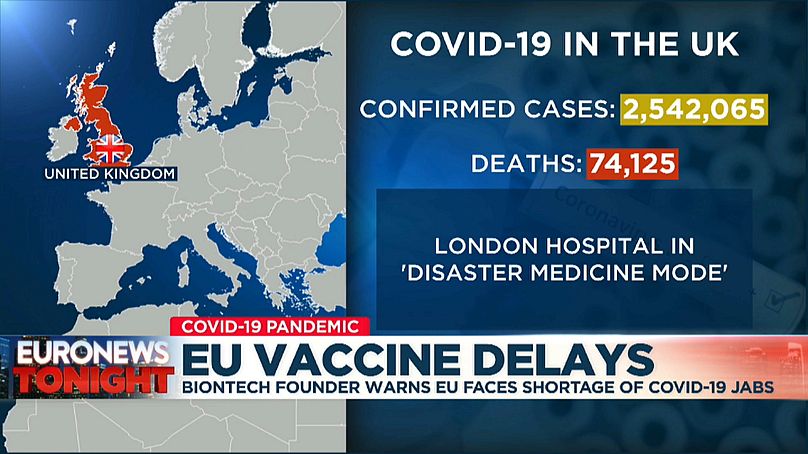The figures came as the UK changed its vaccinate rollout strategy to ensure more people receive a first dose earlier.
Britain reported more than 50,000 positive virus cases for a fourth successive day as a new variant of COVID-19 spreads across the country.
Authorities reported 53,285 people had tested positive in the 24 hours ending on 1 January.
It was a slight drop from the previous day’s record high but a further sign that the virus is spreading rapidly, particularly in England.
More than a quarter of a million people have tested positive in the UK since Monday, adding to a total of 2.5 million since the pandemic began.
The figures came as a detailed study into the new coronavirus variant found it affected a much greater proportion of people under 20.
Experts behind the study, by Imperial College in London, warned this could be because it began to spread at a time when England was in lockdown but schools were still open.
But they agreed the variant was “hugely” transmissible and increased the R number, the rate by which an infected person spreads the virus to others, by 0.7.
Change in vaccine strategy
“Until a very high proportion of the population has been vaccinated, strong social distancing measures are needed to control this more transmissible variant of COVID-19,” said Prof Axel Gandy of Imperial College London.
“Everybody that can be vaccinated should be vaccinated.”
Britain changed its dosing strategy earlier this week in a bid to provide a speedier rollout of the vaccine.
Patients will now receive the second dose within 12 weeks of the first, rather than the three weeks initially envisaged so that more people could be vaccinated sooner.
Britain’s four chief medical officers said in a statement that they were confident a single dose would provide “substantial” protection.
“In the short term, the additional increase of vaccine efficacy from the second dose is likely to be modest; the great majority of the initial protection from clinical disease is after the first dose of vaccine,” they said.













